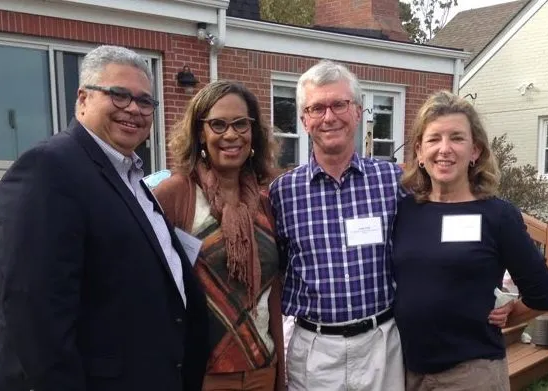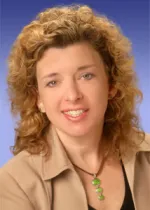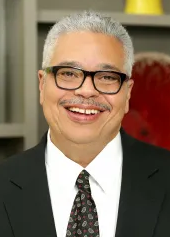April 30, 2020
Conversation with Chief Judge Mary Jane Hall and Judge Jerrauld C. Jones of the Norfolk Circuit Court
Conversation contributed by Matt Strauser

Pictured above from left to right, Judge Jerrauld C. Jones; his spouse, Judge Lyn Simmons; Judge Hall’s spouse, John Hall; and Judge Mary Jane Hall.

Judge Hall hails from the Washington, D.C., area and graduated from the University of Maryland before receiving her law degree from the Georgetown University Law Center. After law school, she clerked for a judge in the Norfolk Division of the U.S. District Court for the Eastern District of Virginia. Before taking the bench in 2009, Judge Hall was senior counsel at Kaufman & Canoles in Norfolk. Before that, she worked at McGuire Woods and Mezzullo & McCandlish (now known as McCandlish Holton) in Norfolk.

Judge Jones was raised in Norfolk and graduated from Princeton University and Washington & Lee University Law School. Judge Jones has served in all three branches of government in Virginia: as a member of the Virginia House of Delegates, Director of the Department of Juvenile Justice, and as a judge in the Norfolk Juvenile and Domestic Relations District Court and the Norfolk Circuit Court. Judge Jones was appointed to the Circuit Court bench in 2008.
How and when did you know you wanted to be a judge?
Judge Hall: The first five minutes of my first day on the job as a law clerk to Judge Calvitt Clarke in federal court in Norfolk. I’d worked in law firms part-time and summers throughout my time at Georgetown Law, so I had a good feel for what life as a lawyer would be like; but I quickly concluded that the judge’s job—making the decision instead of just presenting one side or the other—was the one I would prefer.
Judge Jones: Unlike most of my judicial colleagues, I truly did not aspire to the bench. I loved being a lawyer and a citizen legislator. Instead, I aspired to higher political office. However, due to the sudden death of a Juvenile and Domestic Relations Court Judge, the local legislators called upon me to accept appointment to the Bench. Obviously, I was humbled and honored to answer the call. Thereafter, by interim appointment, I was elevated to the Circuit Court by then Governor Kaine.
What professional advice would you give to your younger self?
Judge Hall: I would remind her that the years turn into decades at blizzard speed and to keep sight of the things that are important: family, health, values. This demanding client, that enormous case, this urgent assignment—they will all be replaced by the next demanding client, enormous case, and urgent assignment. If you stay at the office to write the brief and miss reading “Goodnight Moon” to your kid, remember you don’t get that night back. I don’t think I missed the mark in that respect too much, but I know that my younger self would have been grateful to hear my older self tell her that.
Judge Jones: It may sound trite, but it is true. The practice of law is a marathon and not a sprint. It is the body of your work for which you will ultimately be respected and remembered as a great attorney, not just the matter at hand.
In addition to serving as a Judge, how do you serve the legal community and the community at large?
Judge Hall: It’s a little more difficult as a judge: I’ve had to resign from the boards of different organizations on which I formerly served because of all the fund-raising that the Judicial Canons now prohibit me from doing. I do try to say Yes to all of the Bar groups who need judges to participate in panels and legal education seminars. I serve on a number of statewide committees that serve and improve the judiciary.
Judge Jones: Through the years, I have been appointed to serve on numerous committees within the Bar and in all three branches of government. I have served on the VSB’s Bench Bar Committee. Currently, I serve on the Judicial Council, and the Judicial Performance Evaluation Committee. In the fall of 2019, Governor Northam appointed me to serve on the Commission to Examine Racial Inequity in Virginia Law. Aside from instructing judges-elect in pre-bench training, I frequently speak about the law and other topical issues at schools, colleges, and universities and in the community at large.
What work experiences did you have before and during law school and how has that affected your life as a lawyer?
Judge Hall: I worked for two years (part-time) at the Consumer Information Center in D.C. answering consumer questions, ostensibly to direct folks to the appropriate federal offices for their issues. In fact, I learned that people are very intimidated by government and often clueless about where to go or what to do when they need help. It’s still true. Ordinary people don’t know their way around the system like we do, and they need our help.
Judge Jones: When I was in college during the summer break, I worked first as an “outside machinist’s helper” at a local shipyard. It was very hard, physically exhausting manual labor. It instilled in me the value of hard work, and an appreciation for just how difficult it is for some people to earn a living wage. I also worked for a couple of summers as a waiter at an Oceanfront restaurant. Being a food server who worked for tips, I learned how to read and understand people. It was the best lesson in human nature I ever received and served me very well as a trial lawyer.
What professional achievement means the most to you?
Judge Hall: I was extremely honored and humbled to be elected to the Norfolk Circuit Court by the General Assembly in 2009.
Judge Jones: When I was a practicing attorney, I felt that my most meaningful achievement was satisfying the client I represented, no matter how big or small their cause may have been. As a judge, I strive each day to afford each litigant the fullest and fairest due process of law. In terms of professional recognition, I am extremely proud to have been awarded the Virginia State Bar’s Harry L. Carrico Award for professionalism in 2015. Interestingly, the late Chief Justice Carrico was the judge of my law school moot court competition and I came to know him personally when I clerked at the Supreme Court of Virginia upon graduation from law school.
What personal achievement means the most to you?
Judge Hall: I raised two kids, Ellie and Jack, as a busy working mom, balancing client demands with supervising homework and piano practice and chauffeuring them to all of their activities. Somehow, they both turned into lovely and talented adults with full-time jobs. So, my husband and I did something right there.
Judge Jones: Although I am certainly not wholly responsible, I am proudest of the very positive growth and development of my son, the Honorable Jerrauld “Jay” Jones, who, when sworn in at age 28, became the youngest member of the state legislature representing the district I formerly represented. Also, he has followed me (as well his mother) and his paternal grandfather into the legal profession becoming a third-generation African American attorney.
If you could make one change to the legal profession in Virginia, what would it be?
Judge Hall: We really need the Bar to step up to the importance of providing pro bono service to our indigent. The needs are enormous, and it wouldn’t take much of a commitment to close that gap if we could get everyone to do their part. I understand why the Bar is reluctant to mandate pro bono hours, but if I could figure out a way to convince everyone – right up to the managing partners of the big silk-stocking firms — to take on even one case per year, I would do that.
Judge Jones: Although I know that legal education has become much more clinical since my days at Washington and Lee, I would place even greater emphasis on clinical education during law school in order to better prepare the young practitioner for active practice even if you do not intend to be a litigator. I believe that medical education is correct in that regard.
What job would you have if you weren’t a lawyer?
Judge Hall: A cowboy? I love horses. Or maybe a park ranger. I also love our national parks.
Judge Jones: Immediately following college, I struck out to New York City to become a jazz musician! After a year, I ended up in law school, but I would be a jazz musician playing trumpet and piano professionally.
What do you wish you had more time to do?
Judge Hall: Practice piano and guitar and spend more time playing with my dogs. All terrific stress-reducers.
Judge Jones: Play jazz music, of course!
What book are you currently reading?
Judge Hall: I’m always reading several books at a time. Now it’s The Soul of America, by Jon Meacham, which is reassuring in these bitter times that America has seen very dark periods and emerged stronger and better. Also, I’m re-reading for the umpteenth time P.G. Wodehouse’s The Inimitable Jeeves, because it never fails to have me laughing out loud within five minutes of picking it up. It helps to laugh when life seems worrying and bleak, and nobody makes me laugh more than Wodehouse. Highly recommend.
Judge Jones: I am currently reading the Color of Law: A Forgotten History of How our Government Segregated America, by Richard Rothstein. It informs my work on the Governor’s Commission on Racial Inequity in Virginia Law.